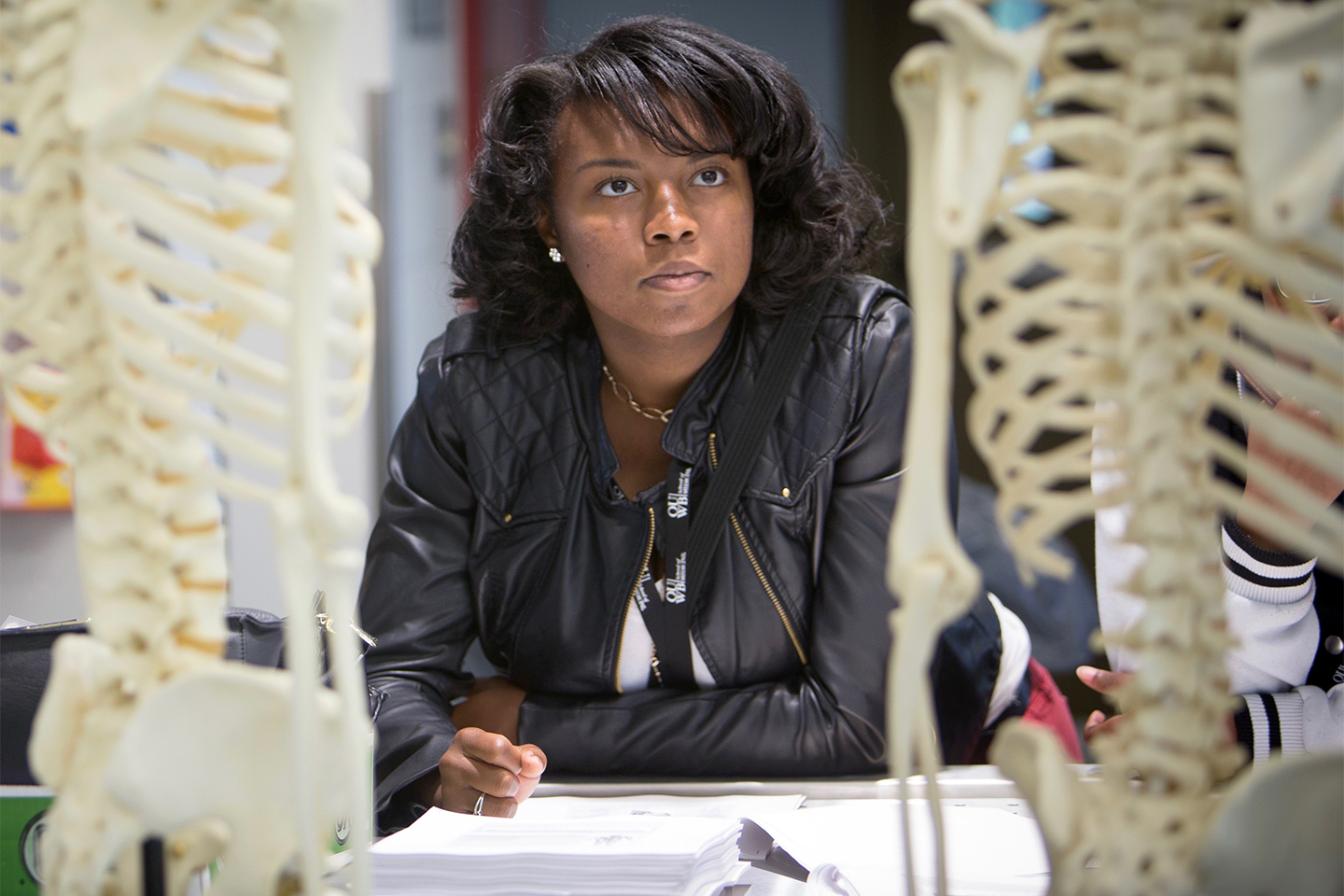OU receives NSF grant for project to engage high school students, minorities in STEM fields

As part of a collaborative research project, Oakland University and Tuskegee University in Alabama have been awarded $894,655 by the National Science Foundation in order to encourage high school students from underrepresented minority groups to pursue degrees and careers in science, technology, engineering and mathematics (STEM) related fields.
OU’s share of the total award is approximately $190,120, according to Associate Professor of Psychology Martha Escobar, who will serve as the principal investigator for Oakland University on the project, entitled “Building Unique Inventions to Launch Discoveries, Engagement and Reasoning in STEM (BUILDERS).”
Associate Professor of Science Education Mark Olson, with the Teacher Development and Educational Studies Department at OU, will serve as the co-principal investigator on the project.
“Our program is not specifically targeted at any particular ethnic minority, but a region that has traditionally been among the poorest in the country, the Alabama Black Belt,” Escobar said. “We are targeting two school districts, Macon and Phenix City, which happen to serve a large number of African American students.”
According to the NSF, the BUILDERS project was designed to test an innovative approach to engaging high school students from underrepresented groups in STEM fields by implementing a blended model that provides both in-school and out-of-school learning opportunities, as opposed to the more traditional model, which focuses almost exclusively on out-of-school settings.
“Instead of teaching STEM concepts in isolation, the BUILDERS project will use highly interdisciplinary Maker activities to immerse 50 high school students and eight teachers in its Summer Academy each summer and another 200 students through the teacher participants’ science classrooms during the school year, for a potential study population of over 700 high school students and nearly 25 teachers,” according to a summary of the project approved by the NSF.
According to Escobar, students who attend the three-week program will work on developing novel material, such as an inexpensive system to filter water, while learning STEM concepts.
“Thus, instead of a typical lecture, they will learn through application,” she said.
The collaborative project is being conducted under the auspices of the NFS’s Innovative Technology Experiences for Students and Teachers (ITEST) program.
“The ITEST program supports the research and development of innovative models for engaging K-12 students in authentic experiences that build their capacity to participate in the STEM and ICT (Information and Communications Technology) workforce of the future,” Escobar said.
She received funding from the NSF for a similar project last year. But whereas that project was aimed at academically talented but economically disadvantaged college students, this one targets underrepresented minorities at the high school level.
“Minorities are chronically underrepresented in STEM, accounting for only about 7 percent of degree recipients and 4 percent of the workforce in some STEM fields,” Escobar said. “Access to support, resources and encouragement could go a long way in broadening participation of those minorities typically underrepresented in STEM.”
